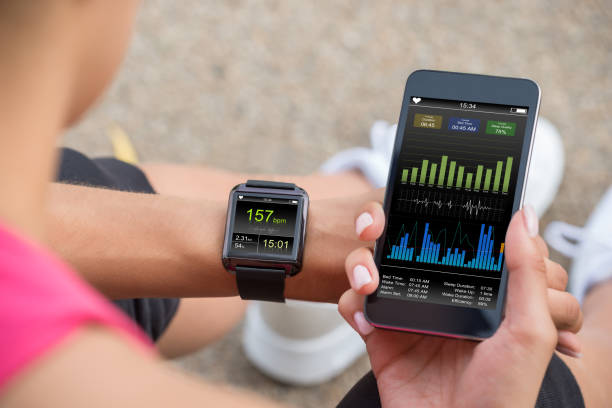Understanding the Importance of Heart Rate Monitors for Your Fitness Routine
Heart rate monitors have become an essential tool for fitness enthusiasts and athletes alike. These devices provide valuable insights into your body's response to exercise, helping you optimize your workouts and achieve your fitness goals more effectively. By tracking your heart rate during physical activity, you can ensure you're exercising at the right intensity and make data-driven decisions about your training regimen. Let's explore why heart rate monitors are crucial for maximizing your fitness routine and how they can take your workouts to the next level.

What exactly is a heart rate monitor?
A heart rate monitor is a device that measures and displays your heart rate in real-time. Typically worn on the wrist or chest, these devices use sensors to detect the electrical signals from your heart or measure blood flow through your skin. Modern heart rate monitors often come integrated into smartwatches or fitness trackers, offering additional features like step counting, sleep tracking, and GPS functionality. By providing continuous heart rate data, these devices allow you to monitor your cardiovascular response to exercise and daily activities.
How does a heart rate monitor improve your workout efficiency?
Heart rate monitors can significantly enhance your workout efficiency by helping you maintain the optimal heart rate zone for your fitness goals. Whether you’re aiming for fat burning, endurance building, or high-intensity interval training, knowing your heart rate allows you to adjust your effort accordingly. By staying within the target heart rate zone, you can maximize the benefits of your workout while minimizing the risk of overexertion or undertraining. This precision in training intensity leads to more effective workouts and faster progress towards your fitness objectives.
What are the key benefits of using a heart rate monitor?
Using a heart rate monitor offers numerous benefits for your fitness routine:
-
Personalized training: Heart rate data helps you tailor your workouts to your individual fitness level and goals.
-
Improved recovery: Monitoring your heart rate during rest periods ensures adequate recovery between exercises.
-
Progress tracking: Regular heart rate monitoring allows you to track improvements in your cardiovascular fitness over time.
-
Motivation: Seeing real-time data can boost motivation and encourage you to push yourself during workouts.
-
Overtraining prevention: Heart rate monitors can alert you to signs of overtraining, helping prevent burnout and injury.
How can heart rate monitors help you track progress and achieve goals?
Heart rate monitors are invaluable tools for tracking your fitness progress and achieving your goals. By consistently monitoring your heart rate during workouts, you can observe improvements in your cardiovascular fitness over time. For example, you may notice that you can maintain a higher intensity for longer periods or that your resting heart rate decreases as your fitness improves. Many heart rate monitors also sync with smartphone apps or online platforms, allowing you to analyze trends, set goals, and celebrate milestones. This data-driven approach to fitness keeps you accountable and motivated on your journey to better health.
What features should you look for in a heart rate monitor?
When choosing a heart rate monitor to maximize your workout, consider the following features:
-
Accuracy: Look for devices with proven accuracy in heart rate measurement.
-
Comfort: Ensure the monitor is comfortable to wear during various activities.
-
Battery life: Choose a device with sufficient battery life for your workout duration.
-
Water resistance: If you swim or exercise in wet conditions, opt for a water-resistant model.
-
Connectivity: Consider monitors that can sync with your smartphone or fitness apps for comprehensive data analysis.
-
Additional metrics: Some monitors offer extra features like VO2 max estimation, recovery time, and sleep tracking.
How do different heart rate monitors compare in features and pricing?
Heart rate monitors come in various types and price ranges, catering to different needs and budgets. Here’s a comparison of some popular heart rate monitors:
| Product | Type | Key Features | Price Range |
|---|---|---|---|
| Polar H10 | Chest Strap | High accuracy, smartphone connectivity, waterproof | $80-$100 |
| Fitbit Charge 5 | Wristband | 24/7 heart rate tracking, sleep monitoring, GPS | $130-$180 |
| Apple Watch Series 7 | Smartwatch | ECG capability, fitness tracking, cellular connectivity | $400-$800 |
| Garmin Forerunner 945 | GPS Watch | Advanced performance metrics, long battery life, maps | $500-$650 |
| Whoop Strap 4.0 | Wristband | Subscription-based, recovery tracking, strain monitoring | $30/month |
Prices, rates, or cost estimates mentioned in this article are based on the latest available information but may change over time. Independent research is advised before making financial decisions.
In conclusion, heart rate monitors are powerful tools that can significantly enhance your fitness routine. By providing real-time data on your cardiovascular response to exercise, these devices enable you to optimize your workouts, track your progress, and achieve your fitness goals more effectively. Whether you’re a beginner looking to improve your overall health or an experienced athlete aiming to fine-tune your performance, incorporating a heart rate monitor into your fitness regimen can provide valuable insights and motivation to take your workouts to the next level.




